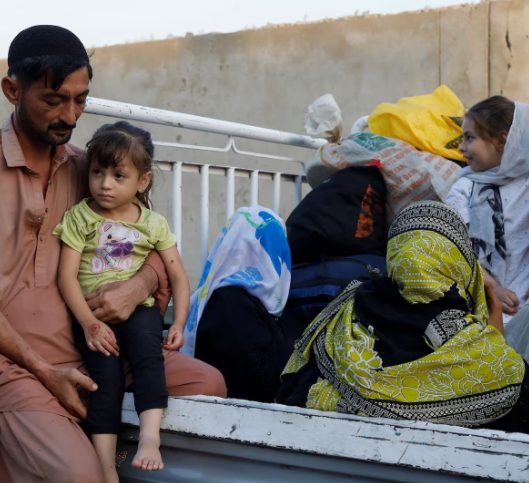Pakistan Set to Start Repatriating Over 1.3 Million Afghan Refugees from September 1
The Pakistani government has announced that it will begin the formal process of repatriating more than 1.3 million Afghan refugees holding Proof of Registration (PoR) cards starting September 1, 2025. This move marks a significant step in the government’s ongoing Illegal Foreigners Repatriation Plan (IFRP).
The decision follows the expiration of PoR cards on June 30, 2025, after which holders of these cards were declared unlawful residents by the interior ministry. These PoR cards were initially issued between 2004 and 2005 to document Afghan refugees living in Pakistan legally without visas.
Federal Directives and Provincial Preparations
An official letter from the interior ministry, dated August 4, was circulated to provincial authorities—including the chief secretaries and police chiefs of all four provinces as well as Gilgit-Baltistan and Azad Jammu and Kashmir—outlining the steps for the repatriation process.
The letter emphasized that voluntary returns should begin immediately, while compulsory deportations will start from September 1 onward. The plan also continues to target other illegal foreign nationals, such as those holding Afghan Citizen Cards (ACC).
Authorities have been instructed to utilize comprehensive databases of PoR cardholders, maintained by the Ministry of Kashmir Affairs, Gilgit-Baltistan, and SAFRON, to coordinate repatriation efforts. National institutions like NADRA will assist by deregistering returnees at transit hubs and border crossings, with the Federal Investigation Agency providing support at the borders.
Provincial administrations are tasked with mapping the PoR population precisely and preparing logistical arrangements, including designated transit areas, transportation, and funding for the returnees.
Khyber Pakhtunkhwa Takes Active Steps
In Khyber Pakhtunkhwa (KP), the Provincial Steering Committee held a meeting to review IFRP implementation. District authorities, law enforcement, and intelligence units were directed to work closely with Afghan community elders, encouraging voluntary returns through jirgas (traditional councils).
Efforts are underway to restore key transit points like Peshawar and Landi Kotal to full capacity. The committee also recommended closing refugee camps that no longer serve a purpose and asked for updated figures on remaining residents.
Local transit points for deportation will be managed by district administrations with input from military and NADRA officials, but the Torkham border crossing remains the primary exit route for deportees.
Afghan Refugee Demographics and Background
According to the UN Refugee Agency (UNHCR), over 1.3 million Afghan refugees lived in Pakistan as of mid-2025. The largest concentrations are in KP (over 700,000) and Balochistan (around 326,000), with smaller populations in Punjab, Sindh, and Islamabad.
PoR cards were introduced in the mid-2000s as a way to formalize refugee status, while Afghan Citizenship Cards came later under a 2016 amendment to the Foreigners Act. These documents allowed Afghans to reside legally in Pakistan without needing a visa.
UNHCR Raises Alarm Over Forced Repatriations
The UNHCR has expressed deep concern over Pakistan’s decision, warning that forcibly returning registered refugees violates international norms. The agency reported recent arrests and detentions of Afghans, including PoR cardholders, raising fears that the repatriation might not be fully voluntary.
While appreciating Pakistan’s long-standing hospitality toward Afghan refugees—spanning more than four decades—the UNHCR stressed that forcing recognized refugees to return contravenes the principle of non-refoulement, which protects displaced people from being sent back to unsafe conditions.
This development signals a major shift in Pakistan’s refugee policy and could have significant humanitarian implications. As repatriation efforts ramp up, coordination between Pakistani authorities and international organizations will be critical to ensure returns happen safely and voluntarily.







